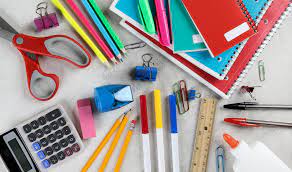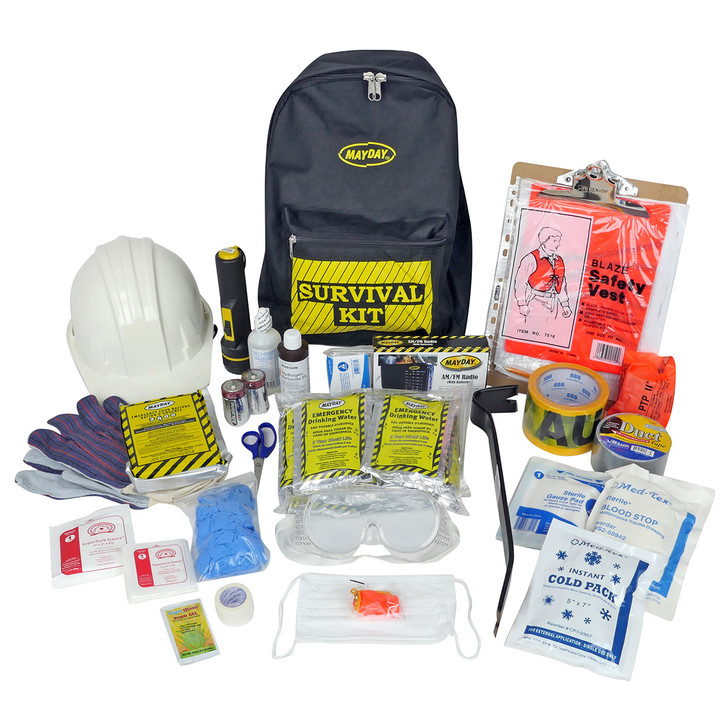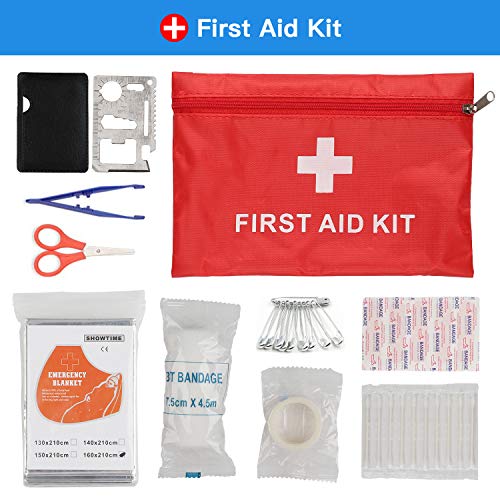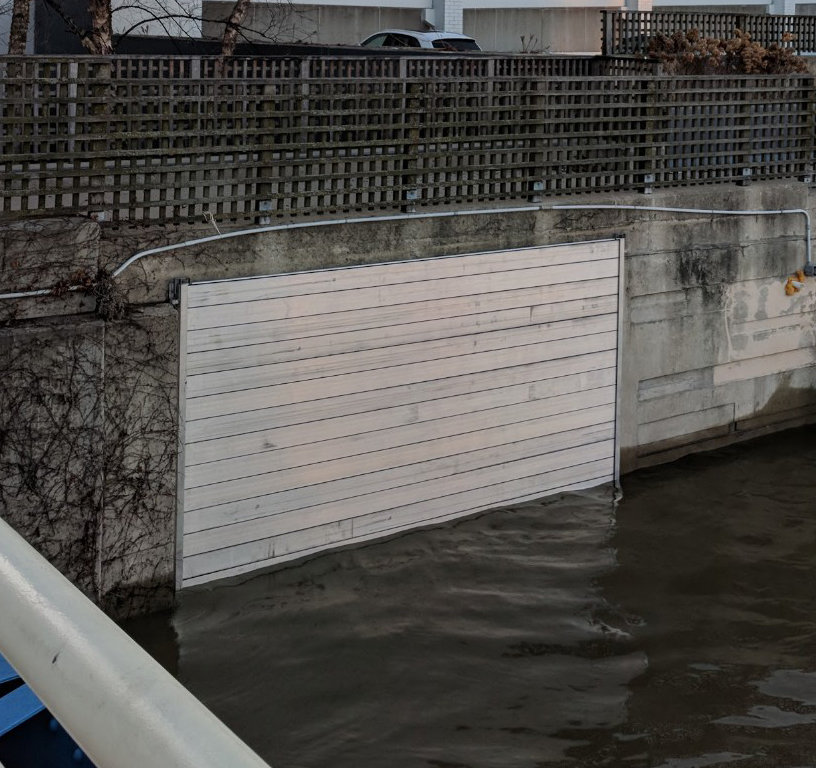The Importance of Having Adequate Supplies for Emergency Preparedness
When it comes to being prepared for emergencies, having the right supplies can make all the difference. Whether you are facing a natural disaster like a hurricane, earthquake, or flood, or dealing with a sudden power outage or medical emergency, having essential supplies on hand can help you stay safe and comfortable during challenging times.
Key Supplies for Emergency Preparedness
Here are some key supplies that everyone should have in their emergency kit:
- Water: One of the most critical supplies to have on hand is clean drinking water. Experts recommend storing at least one gallon of water per person per day for at least three days.
- Food: Non-perishable food items such as canned goods, granola bars, and dried fruits are essential for your emergency kit. Make sure to include a manual can opener.
- First Aid Kit: A well-stocked first aid kit should contain bandages, antiseptic wipes, pain relievers, scissors, tweezers, and other essential medical supplies.
- Flashlight and Batteries: In case of a power outage, having a reliable flashlight with extra batteries is crucial for navigating in the dark.
- Blankets and Warm Clothing: In cold weather conditions or during prolonged power outages, having blankets and warm clothing can help prevent hypothermia.
- Hygiene Supplies: Items such as soap, hand sanitizer, toilet paper, toothpaste, and feminine hygiene products are important for maintaining personal hygiene during emergencies.
Benefits of Being Prepared
Having adequate supplies on hand not only ensures your immediate safety and well-being during emergencies but also provides peace of mind. By being prepared with essential supplies, you can reduce stress levels and focus on implementing your emergency plan effectively.
In addition to individual preparedness, communities that prioritize emergency supply readiness are better equipped to handle disasters and support vulnerable populations. By encouraging neighbors and local organizations to stock up on supplies and collaborate on emergency response efforts, communities can enhance their resilience in the face of adversity.
In Conclusion
Investing time and resources in assembling an emergency supply kit is a proactive step toward safeguarding yourself and your loved ones during unexpected crises. By prioritizing preparedness and ensuring you have adequate supplies at your disposal, you can navigate emergencies with confidence and resilience.
Remember: It’s better to be over-prepared than under-prepared when it comes to emergencies. Start building your emergency supply kit today!
6 Essential Tips for Managing and Maintaining Your Supplies Effectively
- Always keep an inventory of your supplies to avoid running out unexpectedly.
- Purchase supplies in bulk to save money in the long run.
- Organize your supplies in labeled containers for easy access and storage.
- Regularly check the quality of your supplies to ensure they are still usable.
- Consider investing in high-quality supplies for better results and durability.
- Dispose of expired or damaged supplies properly to maintain a clean and efficient workspace.
Always keep an inventory of your supplies to avoid running out unexpectedly.
It is essential to always keep an inventory of your supplies to avoid running out unexpectedly. By maintaining a detailed list of your emergency supplies and regularly checking and replenishing them as needed, you can ensure that you are well-prepared for any situation that may arise. Having an inventory not only helps you stay organized but also allows you to identify any shortages or expired items in advance, enabling you to restock and update your supplies efficiently. Stay proactive and diligent in managing your inventory to enhance your readiness for emergencies.
Purchase supplies in bulk to save money in the long run.
Purchasing supplies in bulk is a smart strategy to save money in the long run. By buying essential items such as non-perishable food, water, batteries, and hygiene products in larger quantities, you can take advantage of cost savings per unit and avoid frequent trips to the store during emergencies. Bulk purchases not only help you save money but also ensure that you have an ample supply of necessary items on hand, increasing your preparedness for unexpected situations.
Organize your supplies in labeled containers for easy access and storage.
Organizing your supplies in labeled containers is a practical tip that can greatly enhance your emergency preparedness efforts. By categorizing and clearly labeling your supplies, you not only ensure easy access during times of need but also facilitate efficient storage and inventory management. Labeled containers help you quickly locate specific items without wasting time searching through cluttered spaces, allowing you to respond promptly to emergencies. This simple yet effective strategy can streamline your preparedness process and contribute to a more organized and effective emergency response plan.
Regularly check the quality of your supplies to ensure they are still usable.
It is crucial to regularly check the quality of your emergency supplies to ensure they are still usable when needed. Over time, items like food, water, batteries, and medications may expire or degrade, compromising their effectiveness during emergencies. By routinely inspecting and replacing expired or damaged supplies, you can maintain the readiness of your emergency kit and ensure that you have reliable resources available when disaster strikes.
Consider investing in high-quality supplies for better results and durability.
When preparing your emergency kit, it is advisable to consider investing in high-quality supplies for better results and durability. Opting for reliable and durable items such as water containers, first aid supplies, flashlights, and food storage can make a significant difference during emergencies. High-quality supplies are more likely to withstand challenging conditions and provide long-lasting support when you need them most. By prioritizing quality in your emergency preparedness efforts, you can enhance the effectiveness and reliability of your supplies for optimal readiness.
Dispose of expired or damaged supplies properly to maintain a clean and efficient workspace.
It is crucial to dispose of expired or damaged supplies properly to maintain a clean and efficient workspace. By regularly checking and removing items that are no longer usable, you not only free up space for functional supplies but also reduce the risk of contamination or accidents. Proper disposal of expired or damaged supplies ensures that your workspace remains organized, safe, and conducive to productivity. Regularly reviewing and refreshing your supplies can help streamline operations and create a more efficient work environment for yourself and your team.




